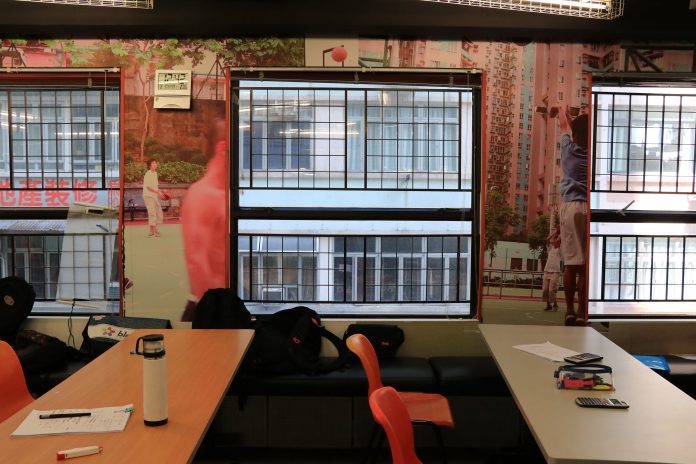School dropouts seek recognition and opportunities outside traditional education
By Crystal Wu & Yi Yeung
On a cold Saturday afternoon, a tired-looking 19-year-old takes a sip of hot tea at home in the hours between working the early shift at a restaurant and taking classes in the evening. Felix Choi dropped out of regular secondary school a year ago, and now finds himself busier than ever. He is at work from 6 a.m. to 2 p.m., takes a nap at home, then goes to evening school at 6:45 p.m. for a three-hour class.
Choi dropped out of school after repeating Secondary Four twice. He says that throughout his time in secondary school, he always knew he had no interest in study. Choi thought that studying school subjects was meaningless for his future life and all he needed to survive was a grasp of basic knowledge. So he spent minimal effort on study and planned to just coast along until his graduation from secondary school – but then he got stuck in Secondary Four.
However, while Choi dropped out of mainstream school, he never considered completely opting out of the education system altogether. This is because both he and his family believe a certificate of secondary school graduation ensures better job prospects. Evening school was preferable because it gave him an alternative way to get secondary school qualifications without having to endure the trappings of conventional school.
“Hong Kong society is certificate-oriented,” says Choi. “[Getting] the certificate represents that you have gone through your secondary school and completed a stage of your life. However much I dislike studying, I still need to finish it.”
Apart from his lack of interest in study, another challenge he faced at secondary school was the classroom environment. Choi says his class was the most disruptive one in the school. He says students in the class were playful and reckless; they were always resisting and disobeying their teachers. Meanwhile, the teachers did not provide much care and help to him and his classmates. Although he did not always agree with his classmates’ disruptive behaviour, Choi says he got along with them happily for five years.
But he was already 18 when the school asked him to repeat Form Four for a third time. His mother suggested he drop out of the school and he considered it seriously. They both agreed that staying there would be no good for Choi’s future and only waste everyone’s time.
Choi says his classmates at evening school are more mature and motivated and it has a good influence on him. “Now, studying at evening school, it feels like I’m remedying my mistakes in the past to catch up on the things I lost when I indulged in play,” says Choi.
Choi may have dropped out of regular school but he still struggles to complete his secondary education because of his belief in the need for basic qualifications, but there are others who reject this and choose a different path.
Renee Lui Hau-lam, now 17, works as a waitress in a café. She dropped out of school last October during her first semester of Secondary Five.
Lui was raised in a single parent family and her mother had high expectations for her academically from a young age. Against Lui’s wishes, her mother enrolled her in a secondary school using English as the medium of instruction although Lui had studied in a Chinese primary school. As Lui was not good at English, she found herself falling behind in secondary school.







































